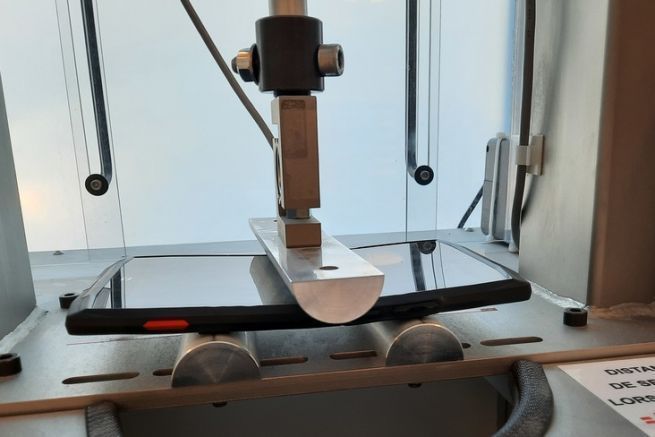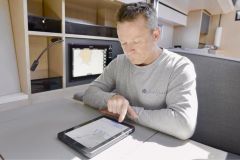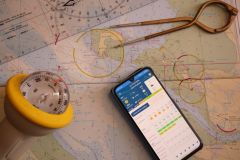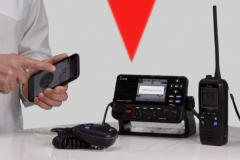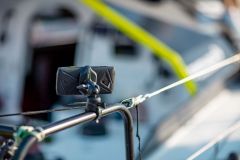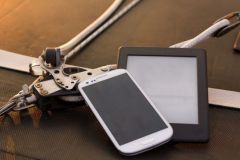A French company
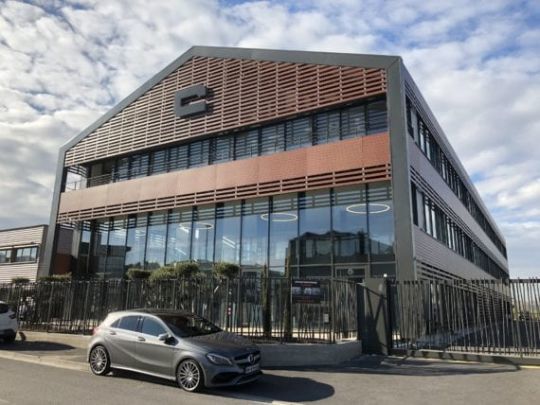
Born in 2009 in the hills of Aix en Provence, the Crosscall company has developed a range of reinforced and waterproof phones, intended for outdoor leisure and industry.
At the origin of this initiative, we find Cyril Vidal, at the time executive in the BTP and passionate about water sports: "As a regular water sports enthusiast, I needed a rugged, waterproof phone to ensure my safety during solo trips. I was not satisfied with any of the models on the market, so I decided to create Crosscall to offer a range of phones adapted to an outdoor environment."
With a turnover of 145 million euros and an annual production of around 500,000 products, Crosscall has gradually established itself as the leader in ultra-resistant smartphones and tablets.
Diversified tests pushed to extremes
Nicolas Leclerc, the Innovation and Design Manager, explains the testing process: "Before being launched on the market, we make sure that each model includes the DNA of the brand. To do this, we have devised a whole series of tests to ensure the durability and viability of our products."
The objective of these tests is to recreate the hostile environment in which the products will evolve. For this purpose, different machines have been developed, combining certification requirements and internal procedures:
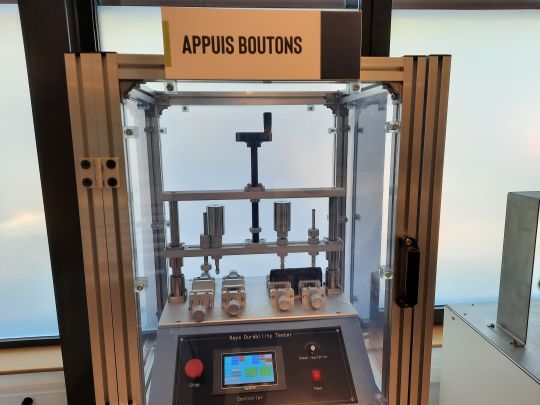
- The button press: this machine will reproduce the action of pressing a button on the smartphone. Approximately 700,000 presses are recreated on each prototype.
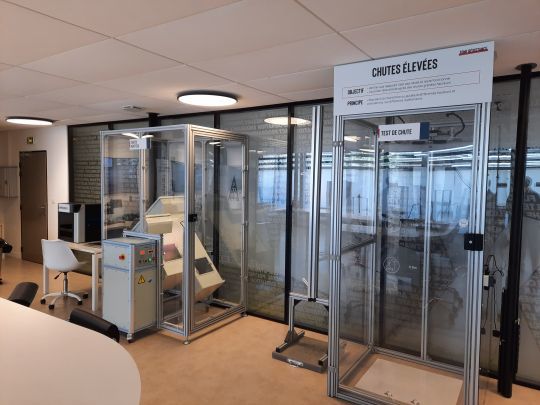
- The drop: the smartphone is dropped from a height of 2 meters on a concrete slab. The fall is targeted on the screen, then the back and finally the edge.
- Repeated drop: the prototype is placed for several hours in a rotating metal box that simulates regular drops
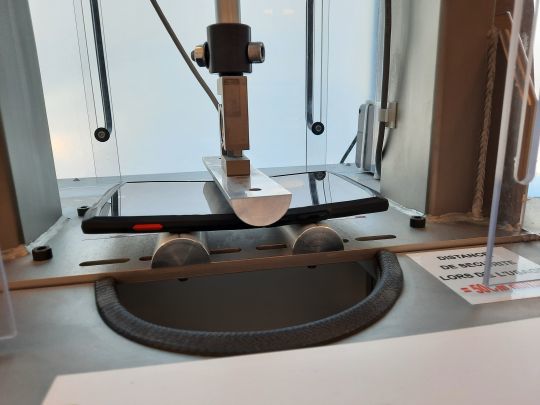
- Bending: a hydraulic press maintains a pressure equivalent to 100 kg on the screen
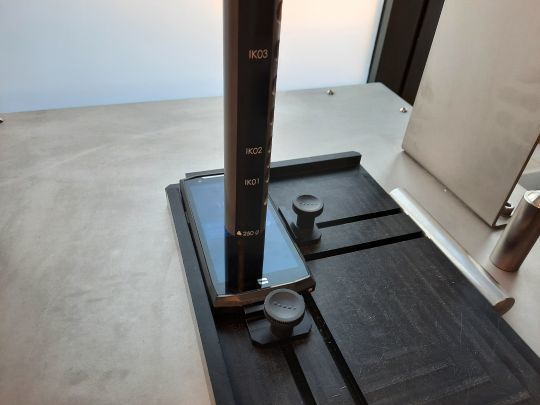
- The IK test for the degree of resistance to targeted impacts: a weight is dropped on different areas
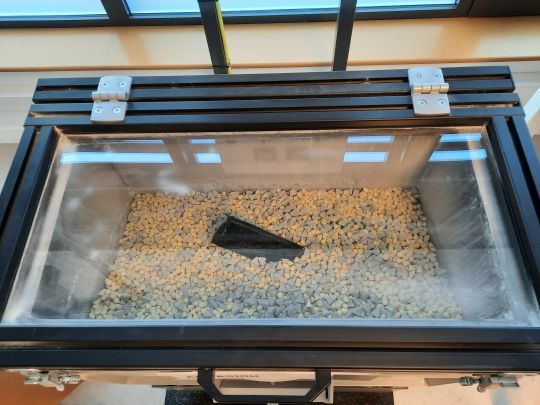
- Abrasion: the smartphone is placed in a sandblaster of mechanical parts
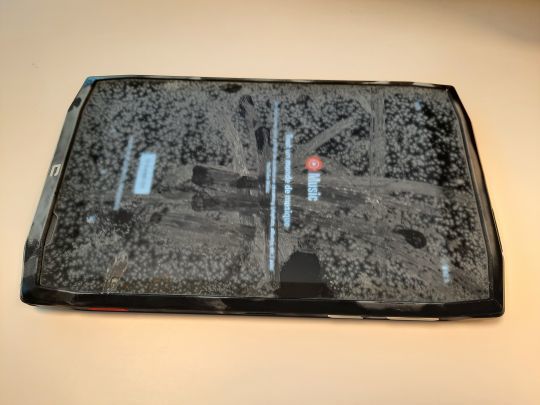
- Thermal shock: the prototype is placed in a watertight box where it is exposed to temperatures ranging from -40° to +60°.
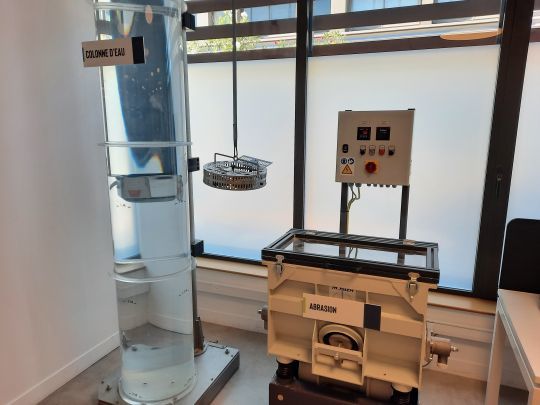
- Waterproofing: placed in a water column of 2 meters, the prototype validates its IP68 rating, which means that it has the ability to operate after prolonged immersion
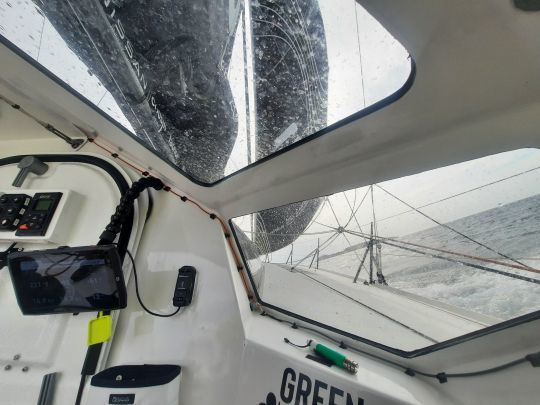
Tablets are also installed in the cockpit of Aurélien Ducroz's Class40, sponsored by Crosscall, which allows the designers to have a "field" feedback of these products.
A return to local production and the development of second life
Recently, the Aix-based company decided to progressively relocate its production site near its headquarters, a way of favoring French manufacturing and guaranteeing the regularity of its production. Crosscall guarantees its products for 5 years. The brand also offers a reconditioning service to extend the life of a used smartphone.
